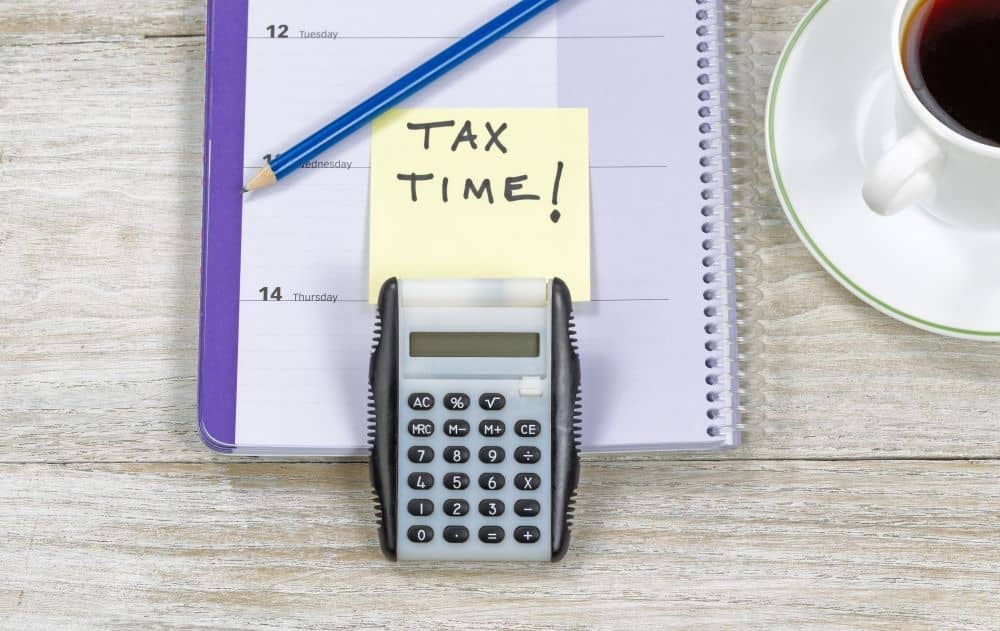Although it may not be the intention of a taxpayer to miss tax return deadlines, one may be facing circumstances that lead to failure to lodge returns. Sometimes, that may go for a year or more before the taxpayer decides to lodge the overdue tax returns.
Lodging tax returns is an obligation for all taxpayers and ATO has a measure to enforce that. As a taxpayer, you may end up paying fines and penalties for late tax returns. It is therefore important that you endeavour to lodge prior year tax returns so that your tax profile is up-to-date. You can take advantage of the available avenues such as the online myTax platform to lodge your prior year’s tax returns. Where necessary, you may have to use a qualified professional tax agent to assist you with lodging overdue tax returns.
How to Tell You Missed the Tax Deadline
Tax returns have a deadline within which every taxpayer must lodge their returns. Thus, one way to tell you missed a deadline is by checking the date against the tax return deadline. Often, most taxpayers know when they miss the deadline. However, in case that passes by and you do not notice, ATO sends notifications to taxpayers that fail to lodge within the deadline. The notification can be through writing or a phone call. ATO will always notify you of your missed tax return before it sends a penalty notice.
Can I Still Submit Late Tax Returns?
Late tax returns are not the end of the world, and you should not worry too much about them. The ATO does not bar anyone from lodging late tax returns. Thus, you can submit your late returns at any time. However, that may be subject to fines and penalties depending on your circumstances. Often, the longer you take to lodge your tax returns, the more likely you are to receive penalties for failure to lodge returns on time. Thus, you should always try to lodge your late returns as soon as possible to avoid penalties
Are There Any Penalties or Fines for Late or Prior Year Tax Returns?
The ATO has a structure for fines and penalties for late tax returns. Depending on your specific circumstances, ATO may impose a Failure to Lodge (FTL) penalty on you. The calculation of the penalty is one unit for every 28 days the tax return is overdue, with a maximum of five penalty units. Each penalty unit is $222, making it a maximum of $1,110. ATO applies size tests where the penalties for larger entities may be multiplied by to or five. For instance, medium taxpaying businesses have their penalties multiplied by two while the fine factor for large entities is five.
Are There Any Chances of Penalty Waivers for Overdue Tax Returns?
The ATO may at times waive part or even the full amount of penalties for taxpayers lodging late returns. The aim of ATO is not to be punitive, but to help taxpayers meet their tax obligations. Where a taxpayer provides reasonable grounds for their late returns, ATO may waive the penalties. Examples of compelling reasons may include incapacitation due to medical emergencies or illnesses and loss of required documents for tax preparation. However, a waiver is unlikely where a taxpayer has more than one overdue tax return or where they have a bad history of lodging tax returns and tax debt payments.
How Do I Lodge a Late Tax Return?
From time to time, you may have to lodge a late tax return or a return for prior years for one reason or another. ATO provides three lodgment options that you can use depending on your preference and circumstances. The three options include lodging a paper tax return, hiring a registered tax agent to make the lodgment for you, and lodging the tax return online through myTax.
The online lodgment of tax returns through myTax is only available for prior years up to 2016. However, you may be able to lodge returns for 2014 and 2015 if you are eligible. ATO provides a list of requirements for eligibility to lodge returns for 2014 and 2015 that you can use as a guide to determine whether you are eligible to lodge returns for those years. You cannot lodge tax returns for 2013 and earlier years as the service is not available for those years.
Hiring a registered tax agent may be necessary in cases where your tax returns are complex. It would also be necessary where you want to lodge returns for prior years before 2014, as the online option is not available for years preceding 2014. When choosing a tax agent, always ensure they are qualified by checking their registration status with the Tax Practitioners Board (TPB). Engaging a tax agent can be face-to-face or online. Hiring a qualified tax agent is advantageous because it gives you consumer protection. The TPB always ensures that registered agents comply with the code of professional conduct. It also ensures that the agents meet and maintain the required standards. As long as you provide all the requisite documents or records, a tax agent should be able to lodge your prior year’s tax returns.
Similar to using a tax agent, lodging a paper tax return is ideal for some circumstances. It is especially ideal for returns covering years before 2014. To use this option, you need the individual tax return instructions as well as a copy of the paper tax return for individuals form. For prior years, you will need to use the prior year’s tax return forms and schedules. Depending on the nature of your returns, you may also need a supplementary section as well as a business and professional items schedule. Once you complete filling out your tax return forms, you have to send them to ATO through its mailing address, which is available on the ATO website.
There are instances when you do not need to lodge a tax return. In such instances, you need to lodge a non-lodgment advice to explain why you do not need to lodge a return. Usually, you would not need to lodge a tax return if your income is below the tax-free threshold of $18,200 and there has been no tax withheld from such income. For the online submission of non-lodgment advice, you can lodge for prior years up to 2000. You can also submit the non-lodgment advice by paper.
Can I Still Lodge a Late Tax Return Even If I Don’t Have All Documents and Receipts?
It is possible to lodge a late tax return even without all documents and receipts. That is possible because ATO collects information about your income from different institutions such as your banks, government agencies, and employers. It then matches the information to your Tax File Number, making it easy to access the information for tax purposes. You can always use this information when lodging your returns. However, that may also mean that you are incapable of claiming some deductions on your income since you do not have some receipts. It is therefore important to maintain a good record of such documents. That is even though it is possible to lodge returns without some documents such as receipts.
As a taxpayer, you should always endeavour to lodge tax returns on time. However, that may not always be possible. However, even when you are late, you should try to lodge returns as soon as possible. That will ensure you avoid unnecessary penalties. Always remember that there are no tax deductions for fines and penalties. Thus, avoiding them by lodging returns on time is highly advisable.
*General Advice Warning – “Any financial advice provided by TaxReturn.com.au is general in nature and is not personal financial advice. It does not take into account your objectives, financial situation, or needs. Before acting on any information, you should consider the appropriateness of it regarding your own objectives, financial situation and needs.”


